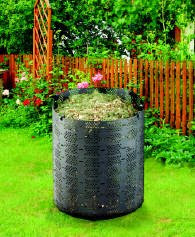Controlling Pathogens and Nutrients When Soil Composting
In a field that receives, manure compost, "this reduces the numbers of pathogens that would find their way onto produce and into runoff after a rain," says Millner. It also stabilizes the nutrient content of the compost so that bacteria cannot re-grow; the nutrients they require are depleted. Intense microbial competition further retards re-growth of the pathogenic bacteria in the final product.
The pathogen-reduction criteria include a temperature of at least 131° F for 3 consecutive days in an aerated pile or 131 °F for 2 weeks in the hot zones of a windrow pile with five turnings. This process can kill nearly all pathogenic microbes and still maintain populations of beneficial ones.
The demand for animal manure is projected to increase. As organic vegetables and fruits gain popularity, more growers value its benefits to soil quality and to the environment. Although in many states untreated manure can be applied to farm fields, this practice can introduce pathogens and parasites into soils and possible runoff or irrigation water. Various state regulations must be considered before agricultural compost can be marketed and sold.
"Agriculture is a farm-to-plate continuum, and we want to make it as safe as possible," says Millner. "It is important to make compost usable to agriculture and horticulture to prevent water and food contamination. "And this is where treatment of manure comes into play.”
Composting also results in stabilization of nitrogen in organic form for use in soils. Compost may even be tailor-made to reduce phosphorus availability and to remediate nutrient-deficient soils. Like pathogens, excess unused nutrients make their way in runoff from fields into surface water. "Nutrient stabilization in composted manure allows soil microbes and plants to use nutrients in a slow-release and beneficial manner," says Millner. "Compost may even help reduce demand for nitrogen in certain crops."
Even though the basic technology may be ancient, composting still has much to offer the world of modern agriculture.


No comments:
Post a Comment
Got an opinion, question, or just want to hear yourself talk? Well, go for it!
We highly encourage user feedback so that we can create a better experience for you and get you all the information that you need!
Send an email to info@gogardenguides.com to start guest blogging with us!
Read more: http://minigreenhousekits.blogspot.com/p/blog-page.html